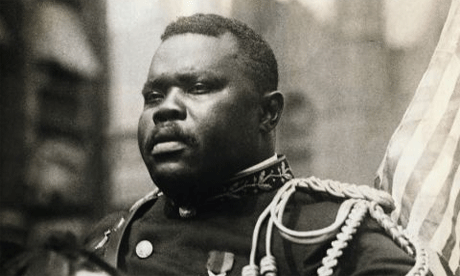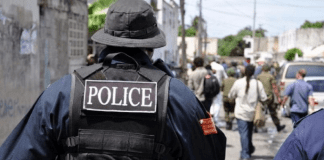On January 19, the news that outgoing U.S. President Joe Biden pardoned Marcus Garvey, Jamaica’s National Hero, came as a surprise, despite decades of strong lobbying by Black leaders in the U.S., activists worldwide, and the Jamaican government.
Garvey, the Jamaican Black nationalist leader, was convicted of mail fraud in 1923, a charge many consider dubious.
Efforts to secure a pardon for Garvey peaked in 2017 as President Barack Obama prepared to leave office, but despite intense lobbying, Obama did not act. As Biden’s tenure drew to a close on January 20, many feared the pardon would again fail—but Biden did not disappoint. In his statement, he acknowledged Garvey’s “global advocacy and impact” and recognized the injustice of his conviction.
While Garvey’s pardon is certainly welcomed, the news would be even more significant if Garvey had been fully exonerated. However, U.S. presidents lack the constitutional authority to exonerate convicted individuals; they can only pardon or commute sentences. In 1925, President Calvin Coolidge commuted Garvey’s five-year sentence, after which he was deported to Jamaica.
Marcus Garvey is widely regarded as a visionary ahead of his time. In the early 20th century, when Black Americans were still struggling to assert their rightful place in society, Garvey, a Jamaican immigrant in his thirties, founded the Universal Negro Improvement Association (UNIA) to promote Black pride, self-reliance, and Pan-Africanism. The UNIA became one of the largest Black-led organizations in history, advocating for the unity of people of African descent globally and emphasizing economic independence and self-determination.
Garvey’s belief in the greatness of the Black race led to his famous call, “Up you mighty race,” and his advocacy for the return of Black people to their ancestral homeland, Africa. His “Back-to-Africa” movement inspired discussions on African sovereignty and diaspora connections, leaving a lasting influence on figures such as Malcolm X and Martin Luther King Jr.
Garvey also launched the Black Star Line, a shipping company aimed at facilitating trade between Africa and the diaspora. Unfortunately, his efforts to finance the venture through stock sales resulted in legal troubles and a conviction for mail fraud. Many believe this conviction was a strategic attempt to undermine Garvey’s growing influence, as his leadership was empowering thousands of Black Americans to fight for their liberation. It’s also thought that President Coolidge’s decision to deport Garvey was motivated by a desire to diminish the threat posed by his influence on the Black population in the U.S.
Garvey’s impact on the Black community in the 1920s and 1930s is undeniable. While his pardon is celebrated by many Jamaicans, it resonates more with the older generation. For younger Jamaicans, the significance of the pardon may be lost, as not many young people—both in Jamaica and in the diaspora—are fully aware of Garvey’s monumental achievements.
Despite numerous efforts to incorporate Marcus Garvey’s life and work into the Jamaican school curriculum, this initiative has yet to materialize. Over the past two decades, despite promises from the Ministry of Education, Garvey’s story has not been adequately taught in schools. This oversight reflects poorly on the quality of education offered to young Jamaicans, as the accomplishments of figures like Garvey should be an essential part of their education.
As Garvey himself said, “A people without knowledge of their past history, origin, and culture is like a tree without roots.” For Jamaica’s youth to responsibly contribute to the nation’s future development, they must first understand its history and the extraordinary figures who shaped it.















